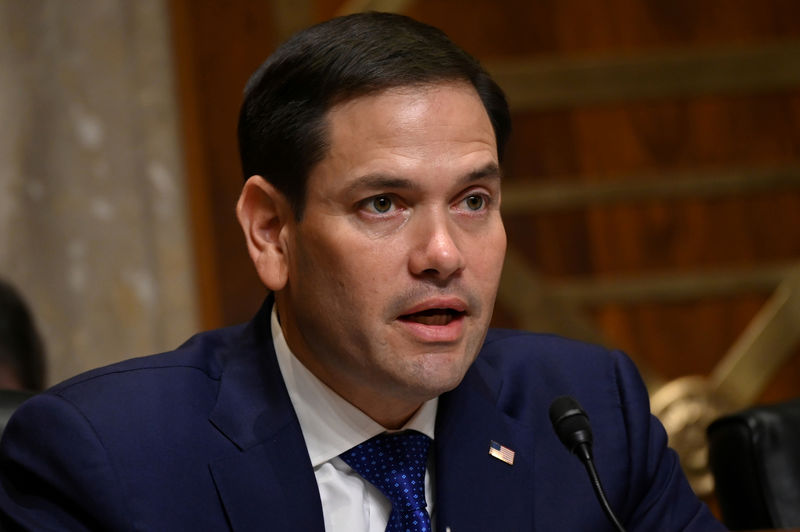By John McCrank
NEW YORK (Reuters) - A pension fund for federal workers on Wednesday said it will begin tracking a benchmark that includes China-listed companies, despite strong opposition from a bipartisan group of Senators.
The decision by the Federal Retirement Thrift Investment Board (FRTIB), an independent government agency that oversees the Thrift Savings Plan (TSP) retirement fund, comes amid heightened trade tensions with China and efforts to limit the flow of U.S. capital to Chinese companies due to security concerns.
It also bucks months of political pressure from a group of U.S. senators led by Republican Marco Rubio and Jeanne Shaheen, a Democrat, who this month introduced legislation dubbed the TSP Act to block TSP from making the benchmark switch. The House of Representatives has introduced a similar bill.
In a statement, Rubio described the decision as "unconscionable" and "foolish," adding: "The Board's refusal to act in the best interests of the United States will not go without consequence. I urge my colleagues to quickly pass our bipartisan and bicameral TSP Act."
The FRTIB said in a letter to the senators that its decision to use the MSCI All Country World ex-U.S. Investable Market Index as the benchmark for its international stock fund came after recommendations from a consulting firm.
That firm said investing in emerging market stocks, which have outperformed developed markets in recent years, was in line with nearly all other major public and private pension plans.
"It is imperative that the Board provide TSP participants with the same opportunities to save for their retirement as are afforded to every other American," the FRTIB wrote.
The FRTIB is a fiduciary of the TSP, which is like a 401(k). As of July, it held $599.5 billion in assets.
MSCI CEO Henry Fernandez said last month that limiting capital flows to China would have a "devastating impact on global markets." But some investment experts said the Senators were right to question whether U.S. federal funds should invest in companies that may be acting against U.S. interests.
Steven Schoenfeld, chief investment officer of BlueStar Indexes, said investors should "look under the hood" of their index funds to assess both investment and policy risk.
"Particularly in emerging markets, fiduciaries should carefully assess the risks posed by certain 'bad actor' companies in their portfolios," he added.

If the U.S. Treasury were to ban investing in a country or companies, they would be dropped from the index, it wrote.